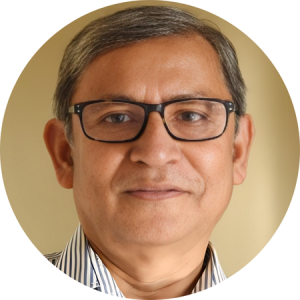IOMP, IFMBE, and IUPAP Awards at WC2025
We are proud to celebrate the exceptional achievements and global contributions of the 2025 award recipients from the International Organization for Medical Physics (IOMP), the International Federation for Medical and Biological Engineering (IFMBE), and the International Union of Pure and Applied Physics (IUPAP). These prestigious awards recognize excellence in medical physics, biomedical engineering, and physics research worldwide, honoring individuals who have significantly advanced their fields through dedication, innovation, and leadership.
IOMP Awards

Dr Michael McNitt-Gray
Department of Radiological Sciences
University of California Los Angeles
United States
Read biography
Dr. Michael F. McNitt-Gray is a Professor Emeritus in the Department of Radiological Sciences at the David Geffen School of Medicine at UCLA. He earned his Bachelor of Science in Electrical Engineering from Washington University in St. Louis in 1979, followed by a Master of Science in Electrical Engineering from Carnegie Mellon University in 1980. He completed his PhD in Biomedical Physics at UCLA in 1993. He joined the faculty of UCLA in 1994. He became the Director of the CAMPEP-accredited Physics and Biology in Medicine (PBM) Graduate Program at UCLA in 2004. His research has focused on investigations into imaging in the detection, diagnosis and staging of disease, primarily using X-ray Computed Tomography (CT). He has been recognized as a Fellow of both the American Association of Physicists in Medicine (AAPM) and the American College of Radiology (ACR).

Prof Adam Kesner
Physicist and Deputy Service Chief of Molecular and X-ray Imaging Physics
Memorial Sloan Kettering Cancer Center
United States
Read biography
Prof Dr John Boone is the recipient of the IUPESM Award of Merit in Medical Physics 2025.
Adam L. Kesner, PhD, DABR, is a Full Attending Physicist and Deputy Service Chief of Molecular and X-ray Imaging Physics at Memorial Sloan Kettering Cancer Center in New York. A Diplomate of the American Board of Radiology specializing in nuclear medicine physics, he has made pioneering contributions in both imaging and therapeutic dosimetry. His early research introduced data-driven motion correction in PET, inspiring commercial products now widely adopted in clinical scanners. As a postdoctoral fellow, he developed streamlined clinical dosimetry protocols that enabled one of the first large-scale implementations of patient-specific dosimetry in radiopharmaceutical therapy. He now co-leads the NIBIB-funded SNMMI MIRD software initiative with Wesley Bolch, serving as contact PI. This program provides free, open-access dosimetry tools to the international community through MIRDsoft.org. Dr. Kesner’s work emphasizes innovation at the intersection of data, software, and clinical translation, with a central focus on advancing personalized medicine and building the infrastructure necessary for its broad adoption.

Prof Golam Abu Zakaria
Physicist
Bangladesh
Read biography
Dr. Golam Abu Zakaria is a renowned medical physicist who has made significant contributions to radiation oncology, nuclear medicine, and diagnostic radiology. He was born on December 31, 1953, in Naogaon, Bangladesh. He began his studies at the Bangladesh University of Engineering and Technology (BUET) before receiving a German government scholarship to study in Germany in 1972. In 1978, he completed his physics studies at the Martin Luther University of Halle-Wittenberg and his postgraduate studies at the University of Göttingen. He received his PhD with distinction and completed a residency in medical physics at the University of Heidelberg. In his doctoral thesis, he presented the pencil beam method for the three-dimensional calculation of electron dose for the treatment of head and neck and lung cancer. This program was used at Heidelberg University Hospital for over 10 years before being introduced into commercial treatment planning. For over 30 years, he was Chair and Chief Medical Physicist of the Department of Medical Radiation Physics at the Gummersbach Academic Teaching Hospital of the University of Cologne, where he advanced dosimetry, radiotherapy planning, and quality assurance, among other areas. Since 2003, he has also been Professor of Clinical Engineering at Anhalt University of Applied Sciences.
Prof. Zakaria played a pivotal role in establishing medical physics education in Bangladesh by establishing the first master’s program at Gono University in 2000 and later founding the South Asian Center for Medical Physics and Cancer Research (SCMPCR), which today trains cancer professionals from South Asia and beyond. AFOMP established a Leadership Award named after him to inspire young professionals. He has held international leadership positions, including chairing the DGMP Working Group on Medical Physics in Developing Countries, vice-chairing the IOMP Accreditation Committee, and chairing Accreditation Committee 2 (Radiation Physics) of the International Medical Physics Certification Board (IMPCB), the EFOMP Working Group on AI, and the ICTP Training Programs.
An accomplished researcher with over 120 publications, he has also explored applications of artificial intelligence in radiotherapy. His achievements have been recognized with numerous national and international awards and honors, including the DGMP and IOMP Fellowship, the Harvard Global Radiation Oncology Distinguished Leader Award, and the Order of Merit of the Federal Republic of Germany.
IUPAP Award

Dr Jesús García Ovejero
University of Navarra Clinic
EFOMP
Spain
Read biography
Dr. Jesús G. Ovejero is a Medical Physicist at the Clínica Universidad de Navarra since 2024. He holds a Bachelor’s degree in Physics from the Complutense University of Madrid (2012) and a Master’s in Condensed Matter Physics and Nanotechnology from the Autonomous University of Madrid. He earned his PhD with a thesis titled “Biomedical Applications of Magneto-Plasmonic Nanoparticles,” focused on nanostructures for photoacoustic imaging and cancer hyperthermia. His doctoral work was recognized with the Extraordinary PhD Award (UCM) and the Spanish Royal Society of Doctors Award.
He completed postdoctoral research at King’s College London (2017) and the Institute of Materials Science of Madrid (2019), followed by a Medical Physics residency at Hospital General Universitario Gregorio Marañón (2021–2024).
Dr. Ovejero has authored over 30 peer-reviewed publications (h-index = 18), including several as first or corresponding author, four book chapters, and two patents. Since 2022, he has represented the Spanish Society of Medical Physics (SEFM) in the European Federation of Organizations for Medical Physics (EFOMP), where he also serves on the Early Career Special Interest Group steering committee.
His current research focuses on nanotechnology-based strategies to enhance cancer treatment with both proton and photon radiotherapy.
